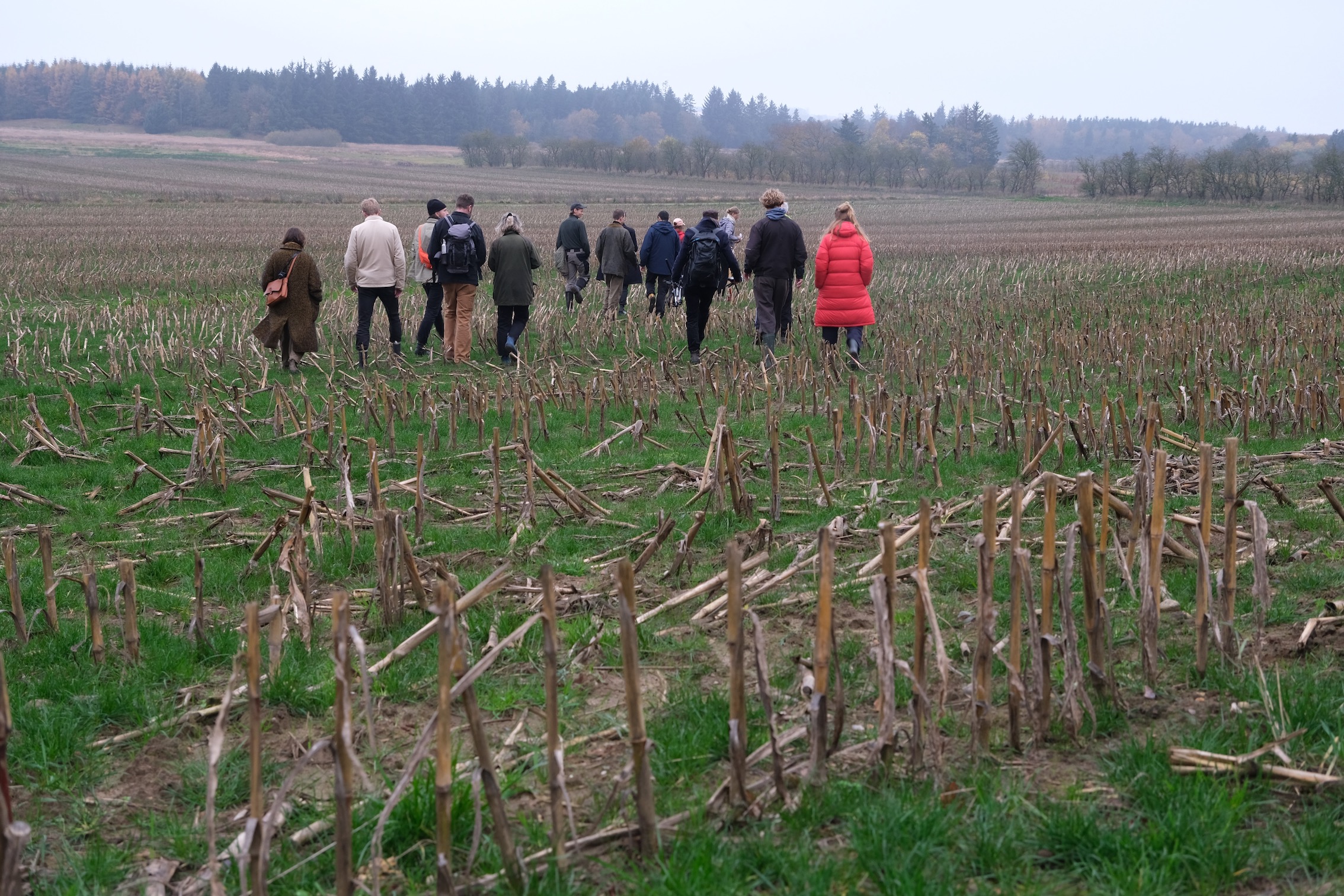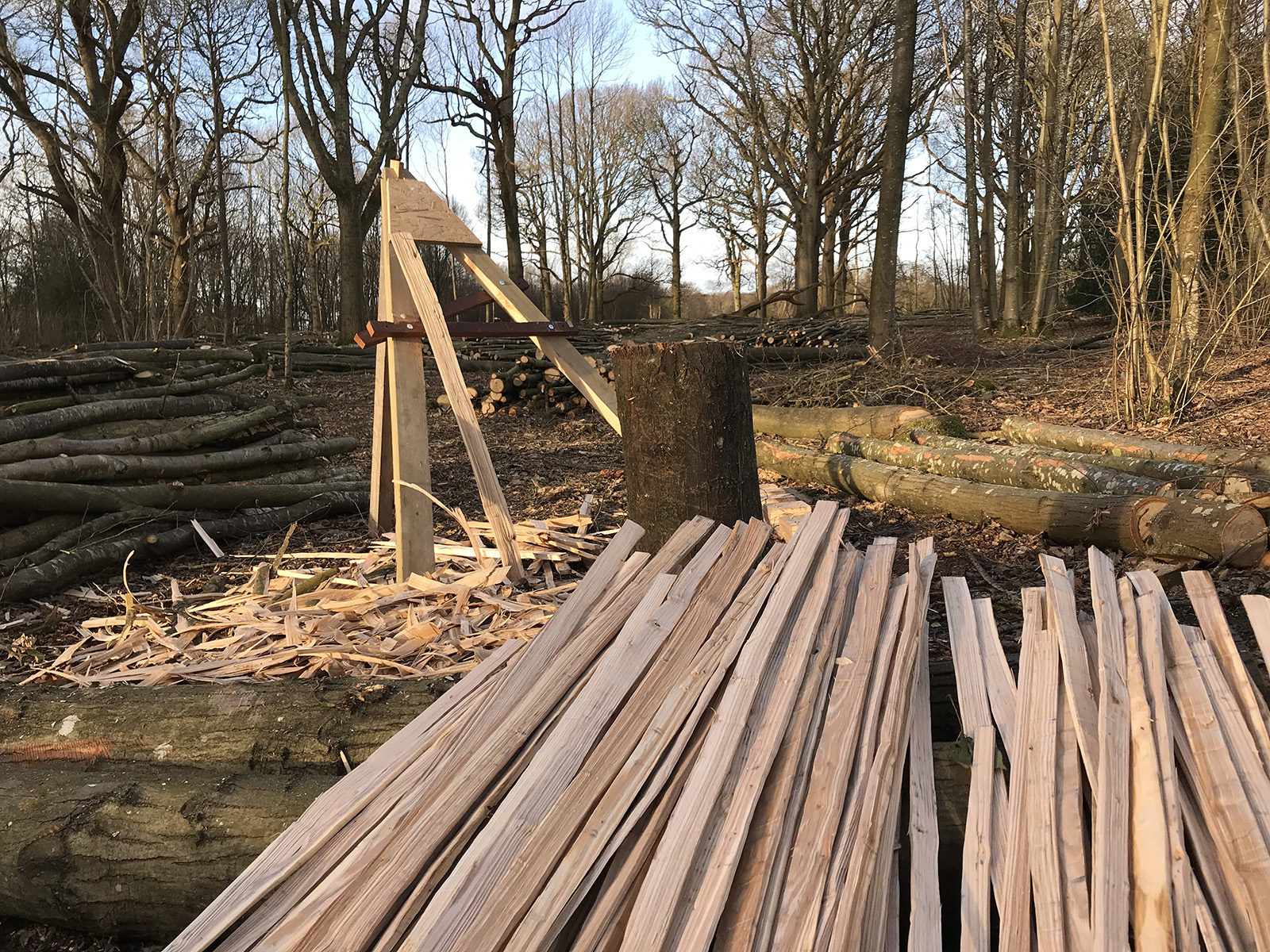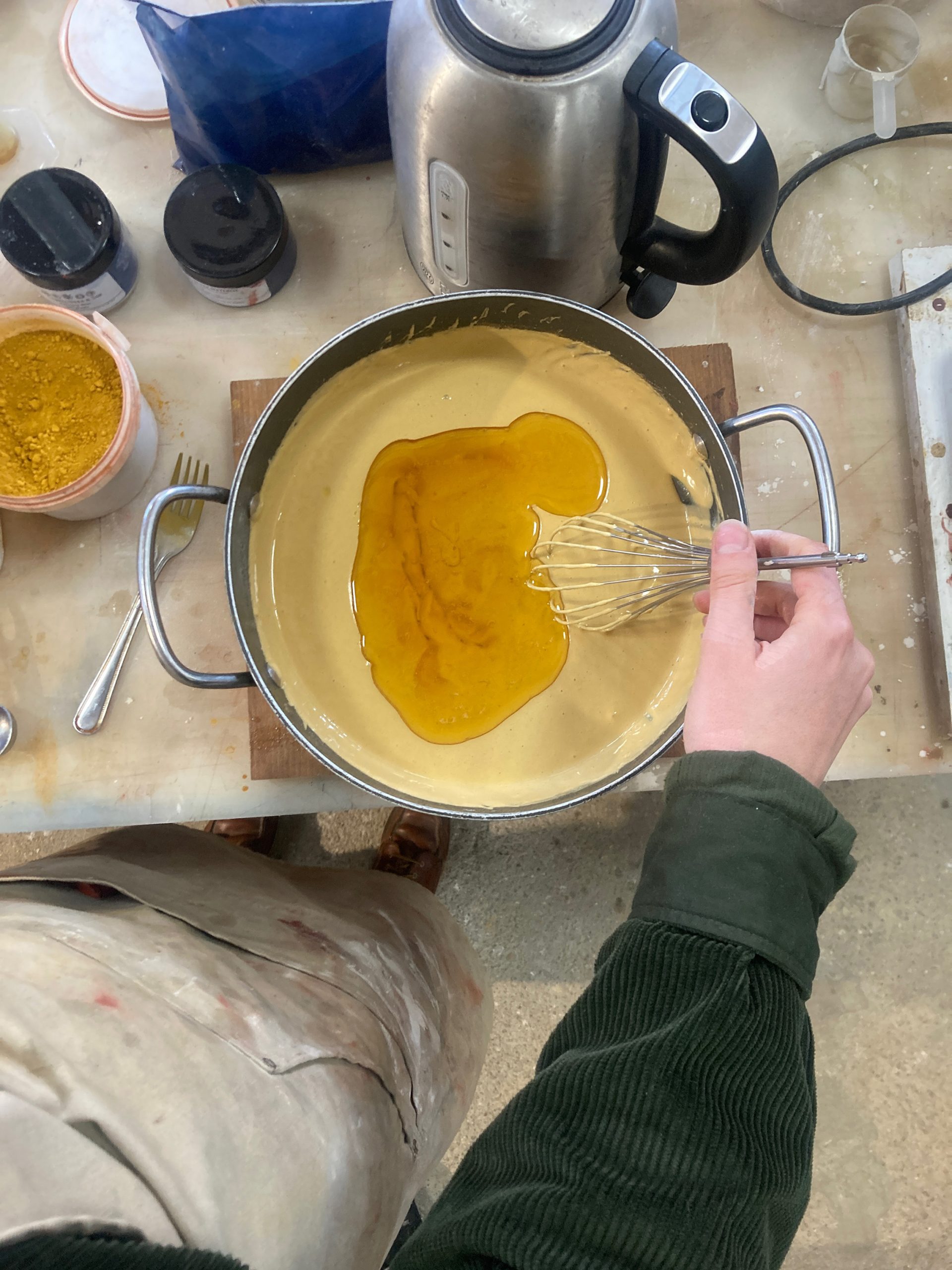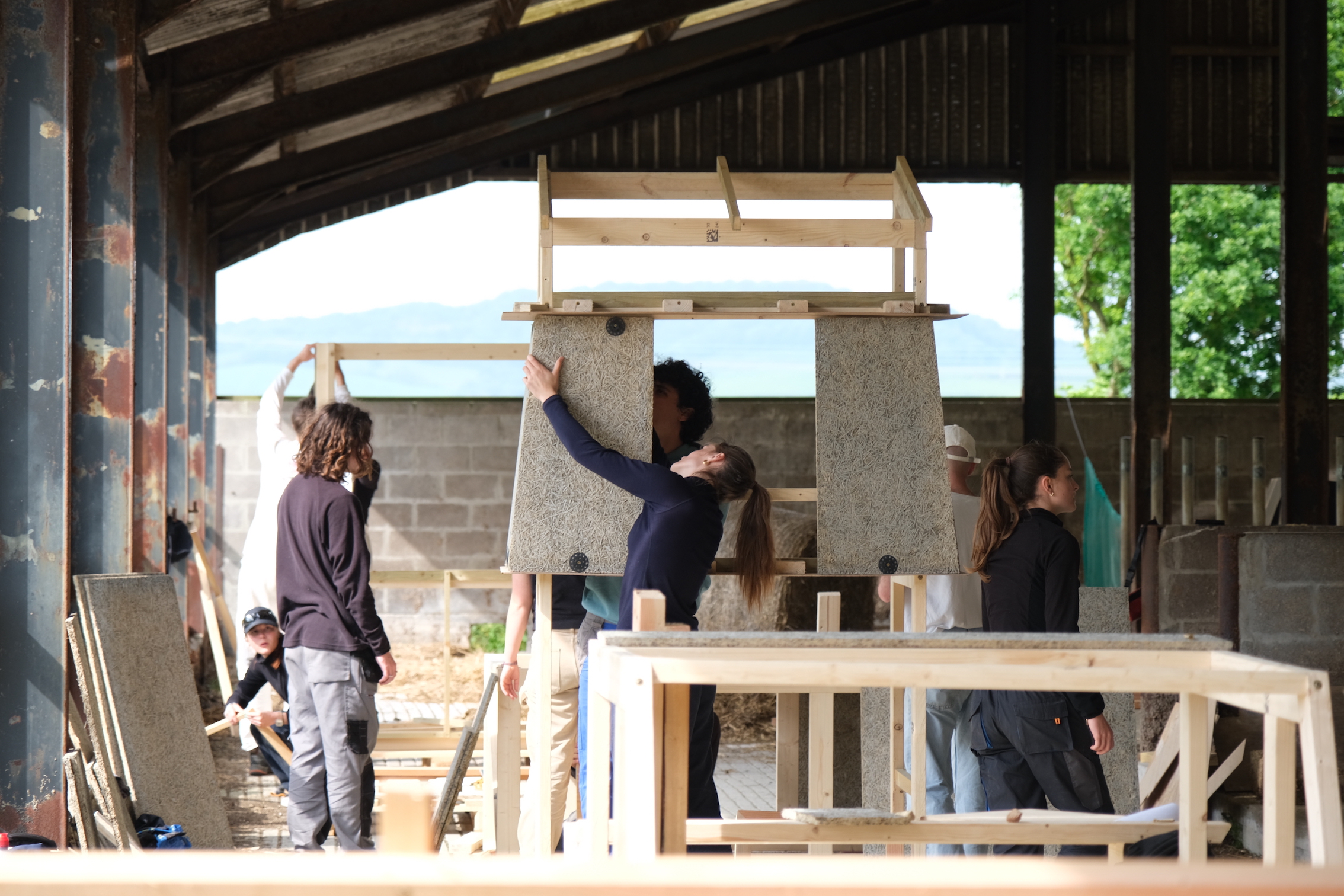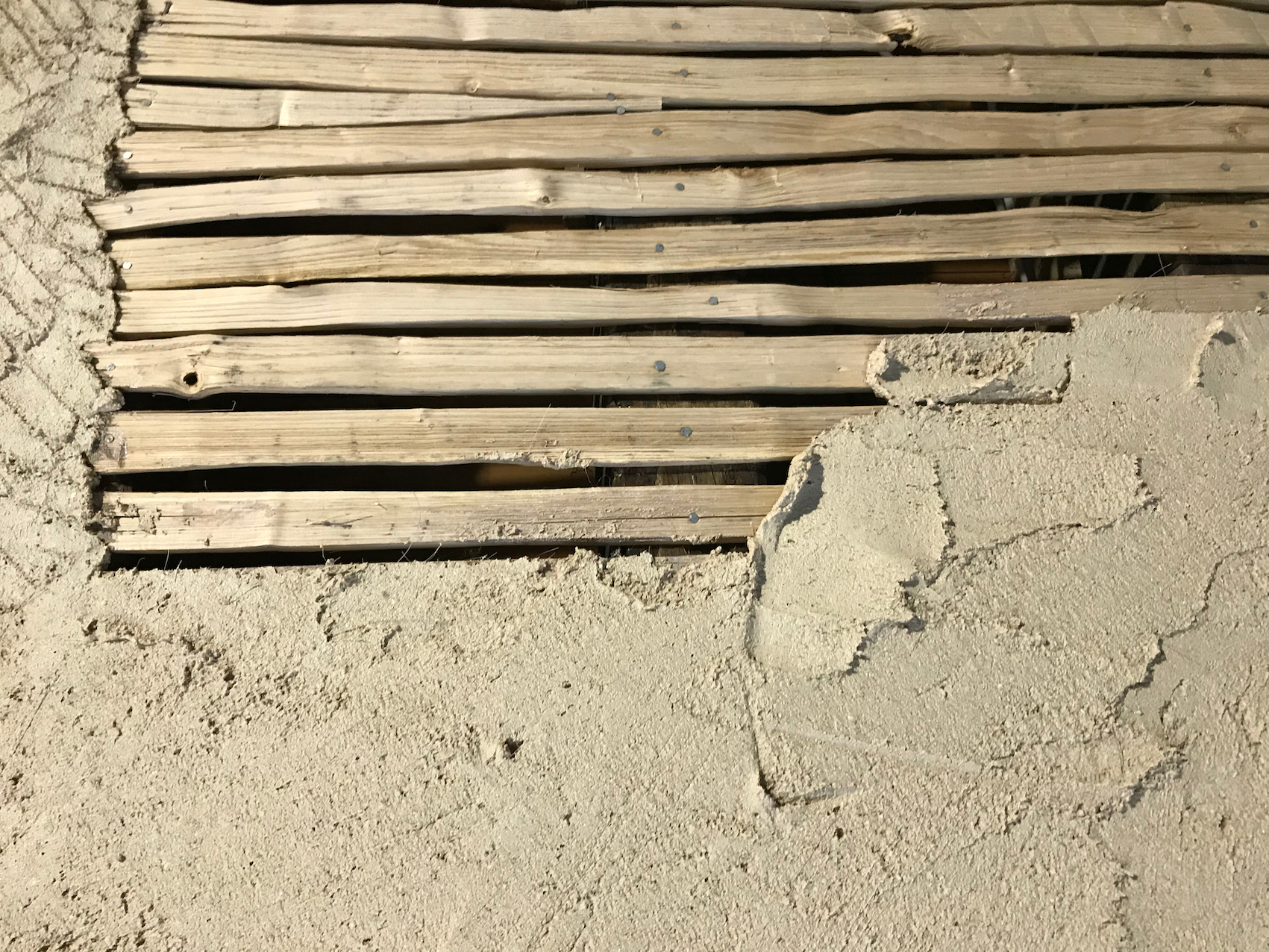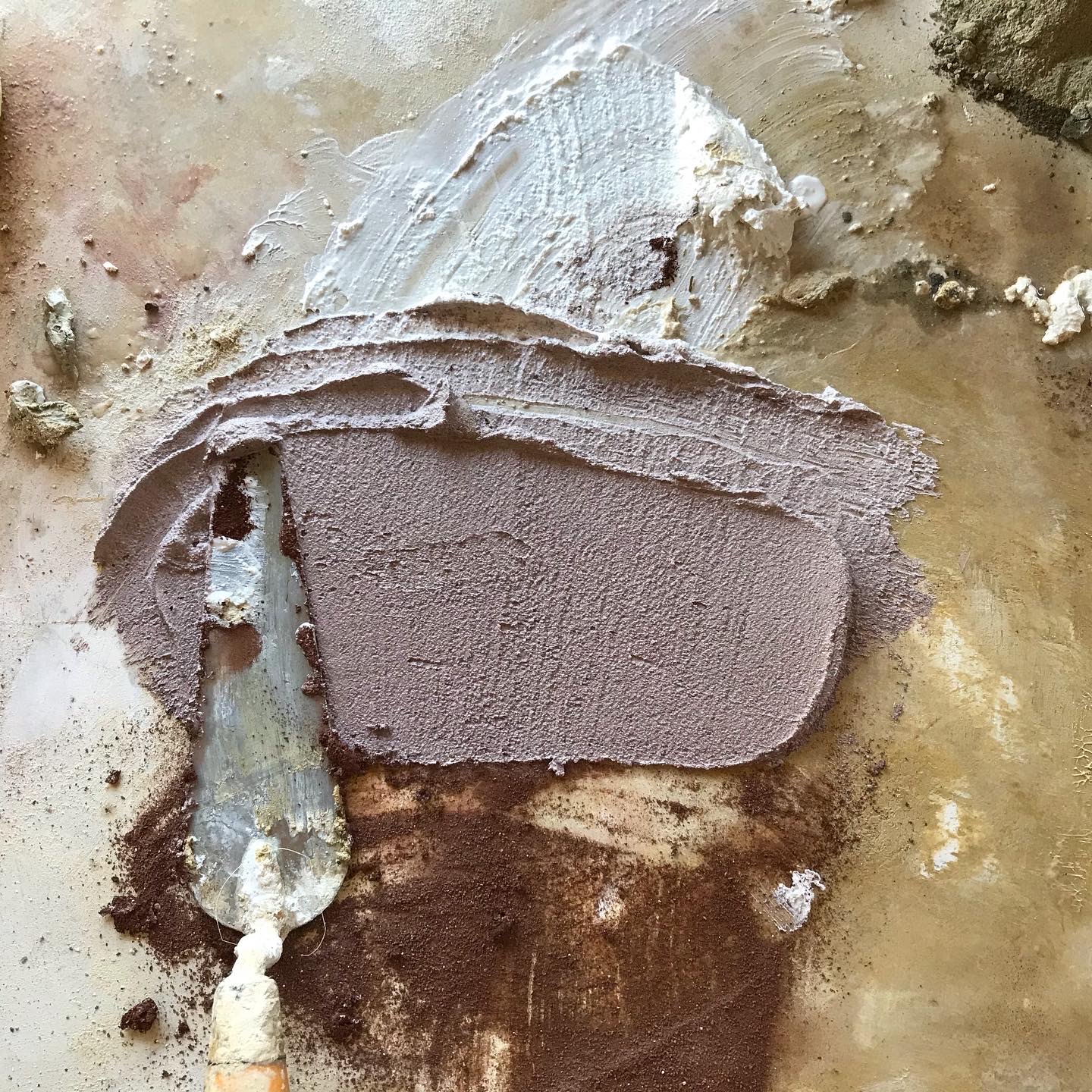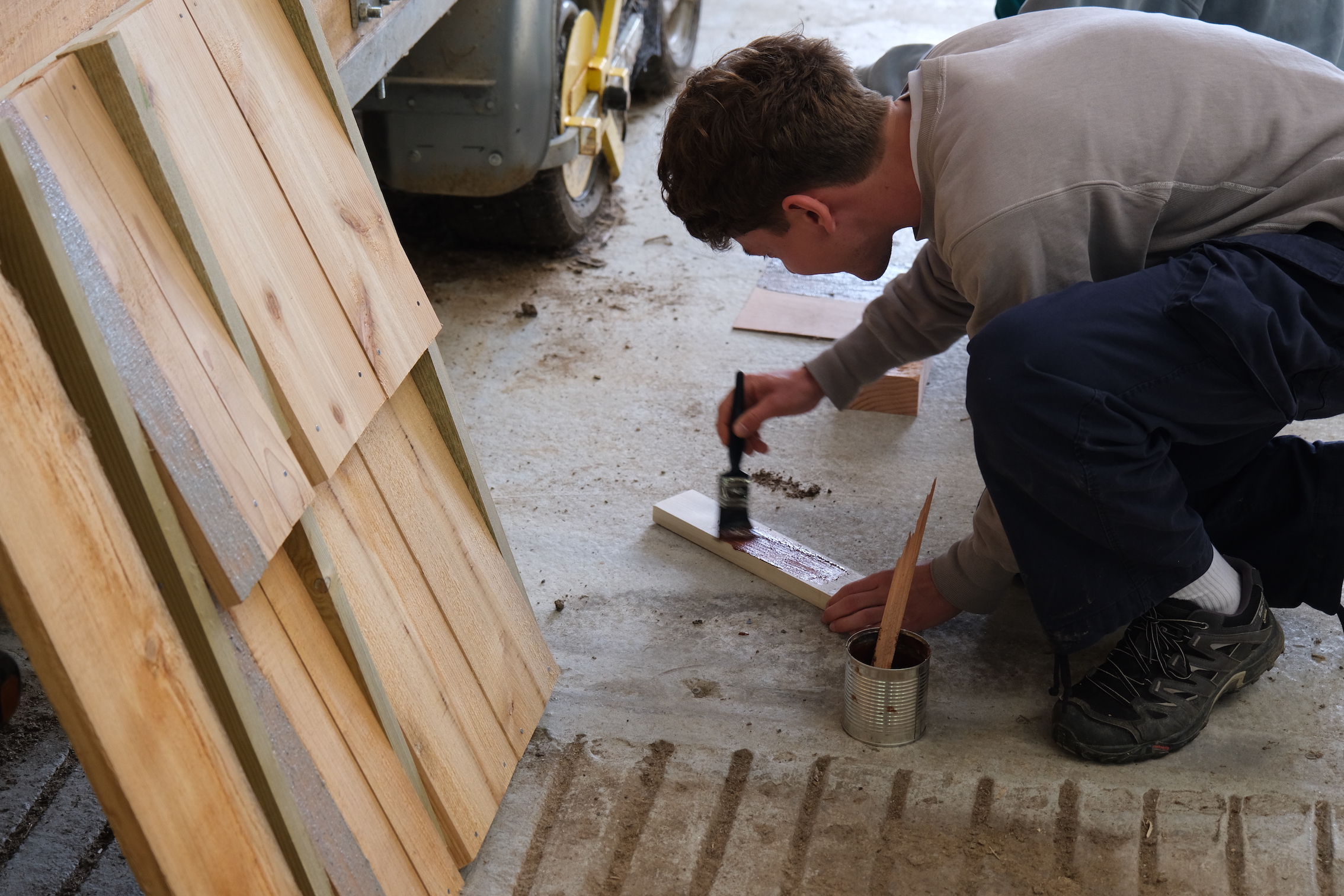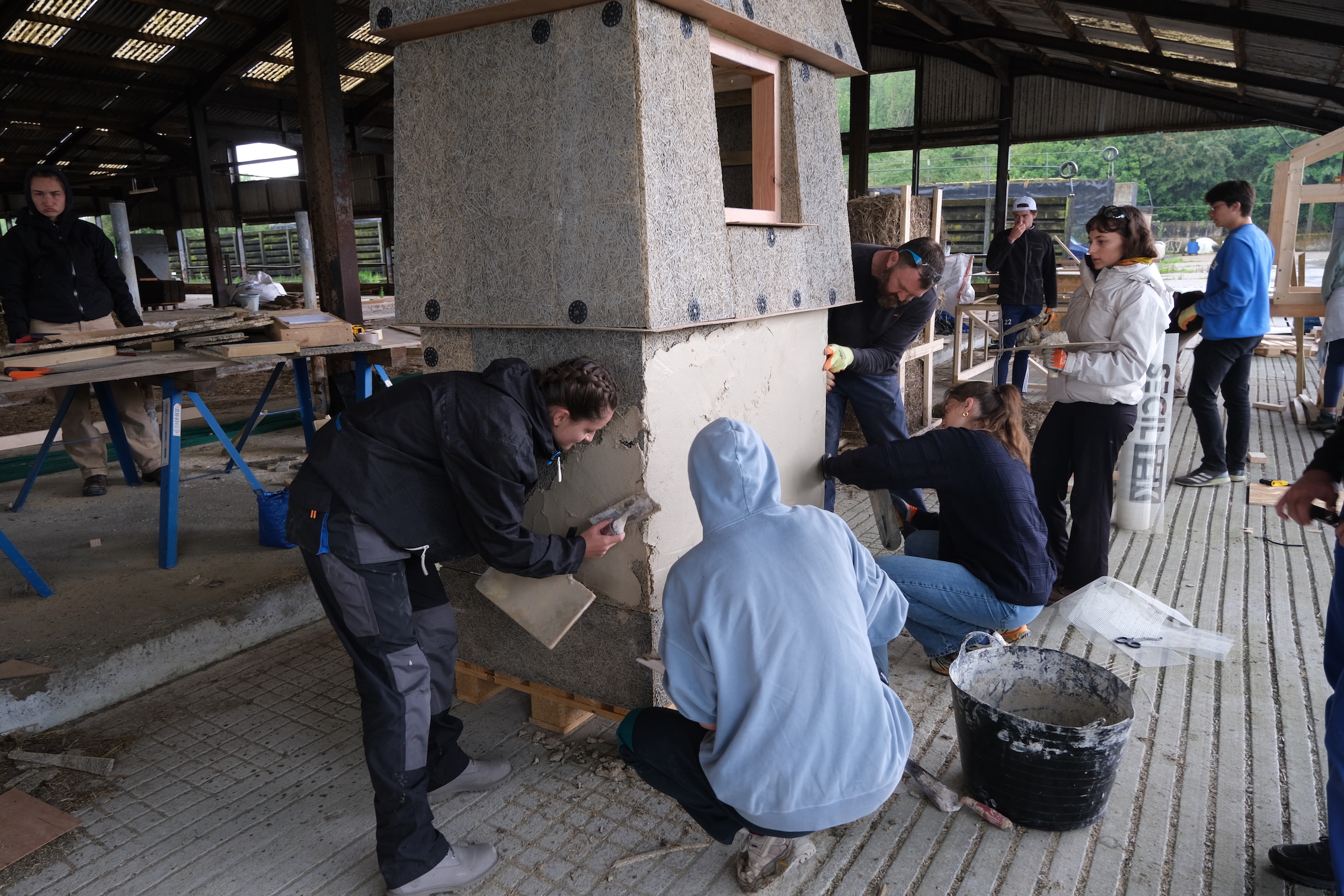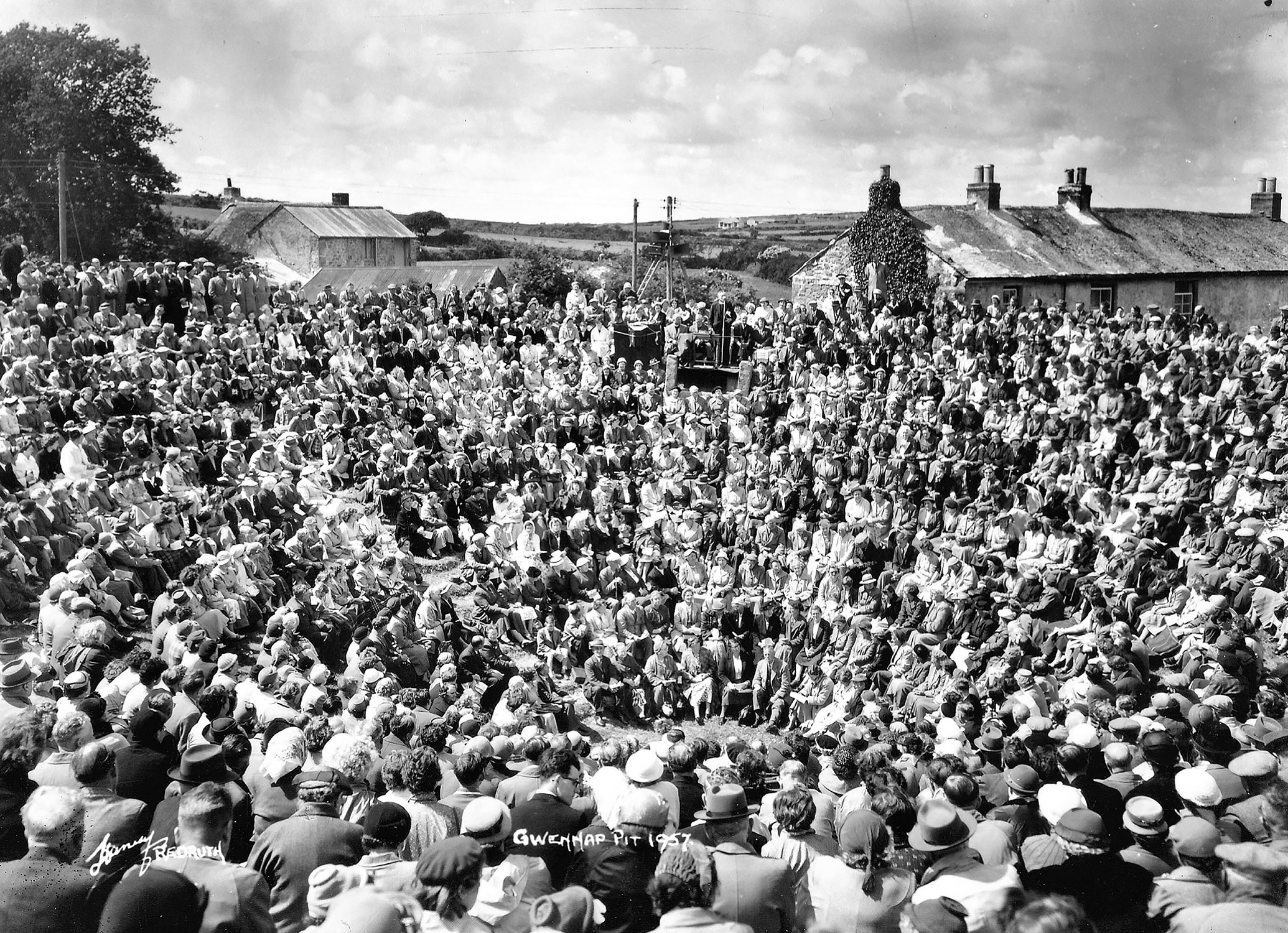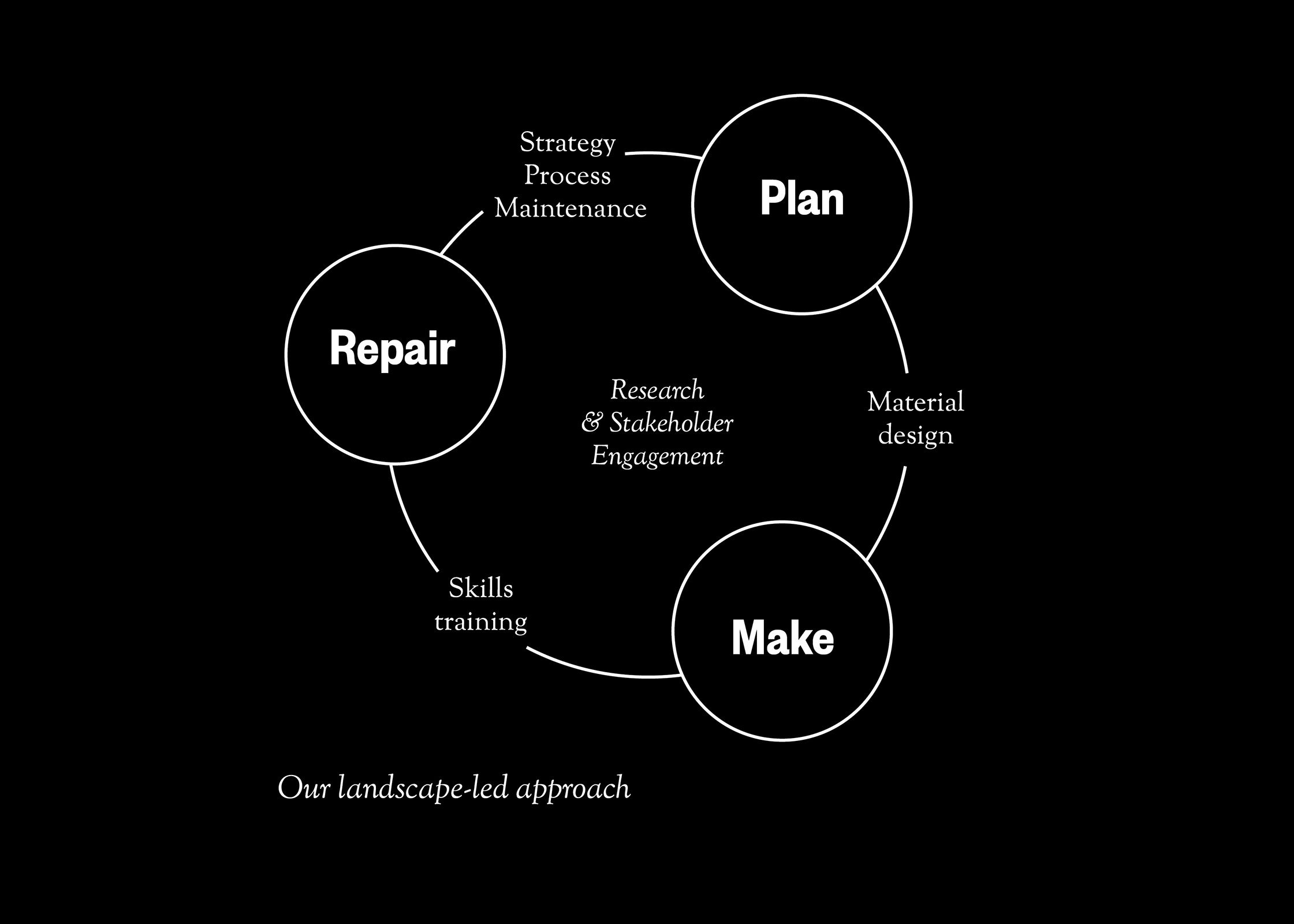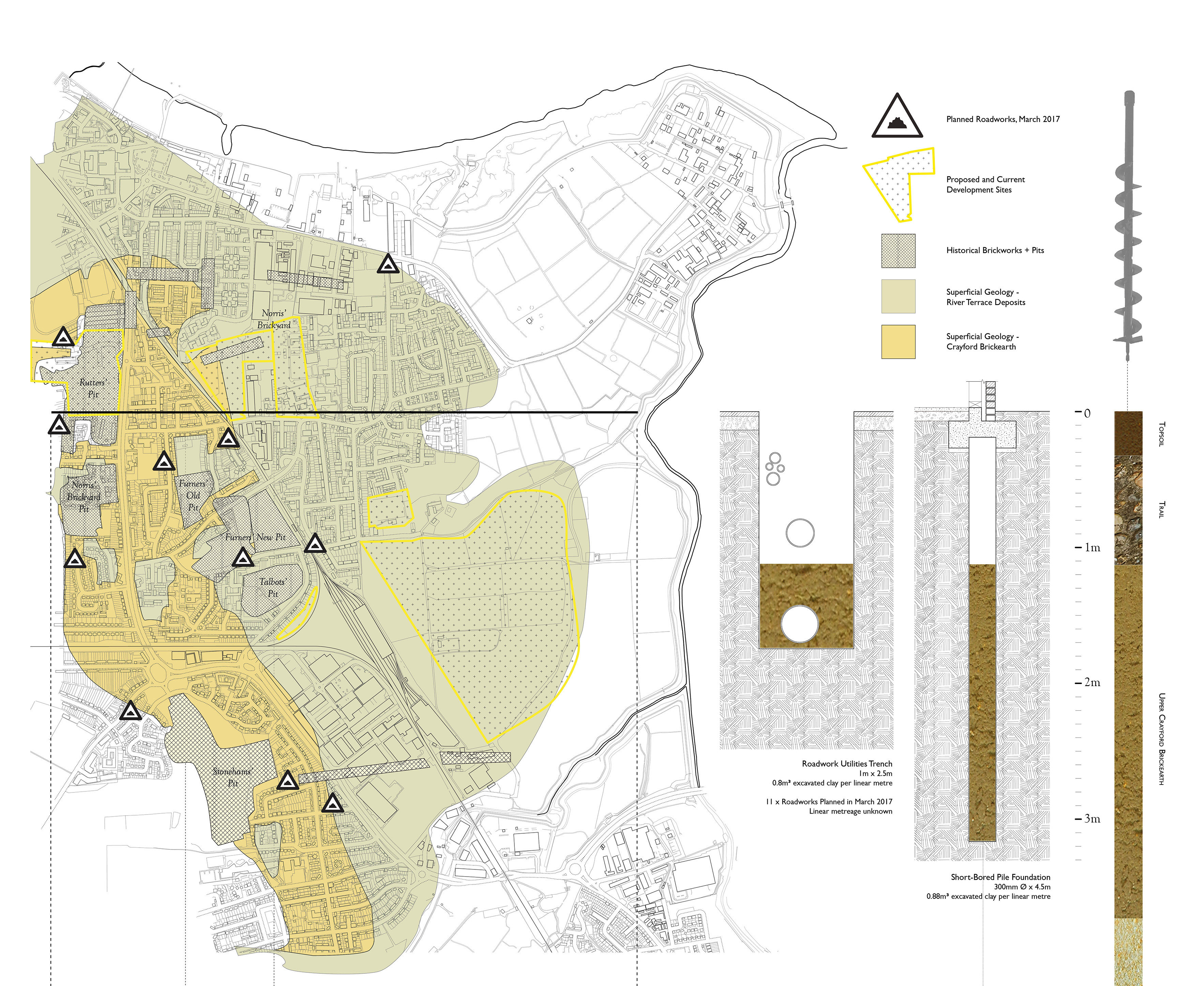Workshops
New for 2025
We are launching our first seasonal program of hands-on courses, to be held at our studio in East Sussex, as well as a walking workshop, exploring the materiality of our local landscape.
The studio courses and walking workshops will focus on understanding materials, their landscape origins and practical methods of processing and making.
Discounts are available for multiple bookings of workshops (does not include the walking workshop):
10% off for second booking
15% off for second and third booking
20% off for second, third and forth booking
Please email us for multiple bookings, rather than using the Eventbrite link
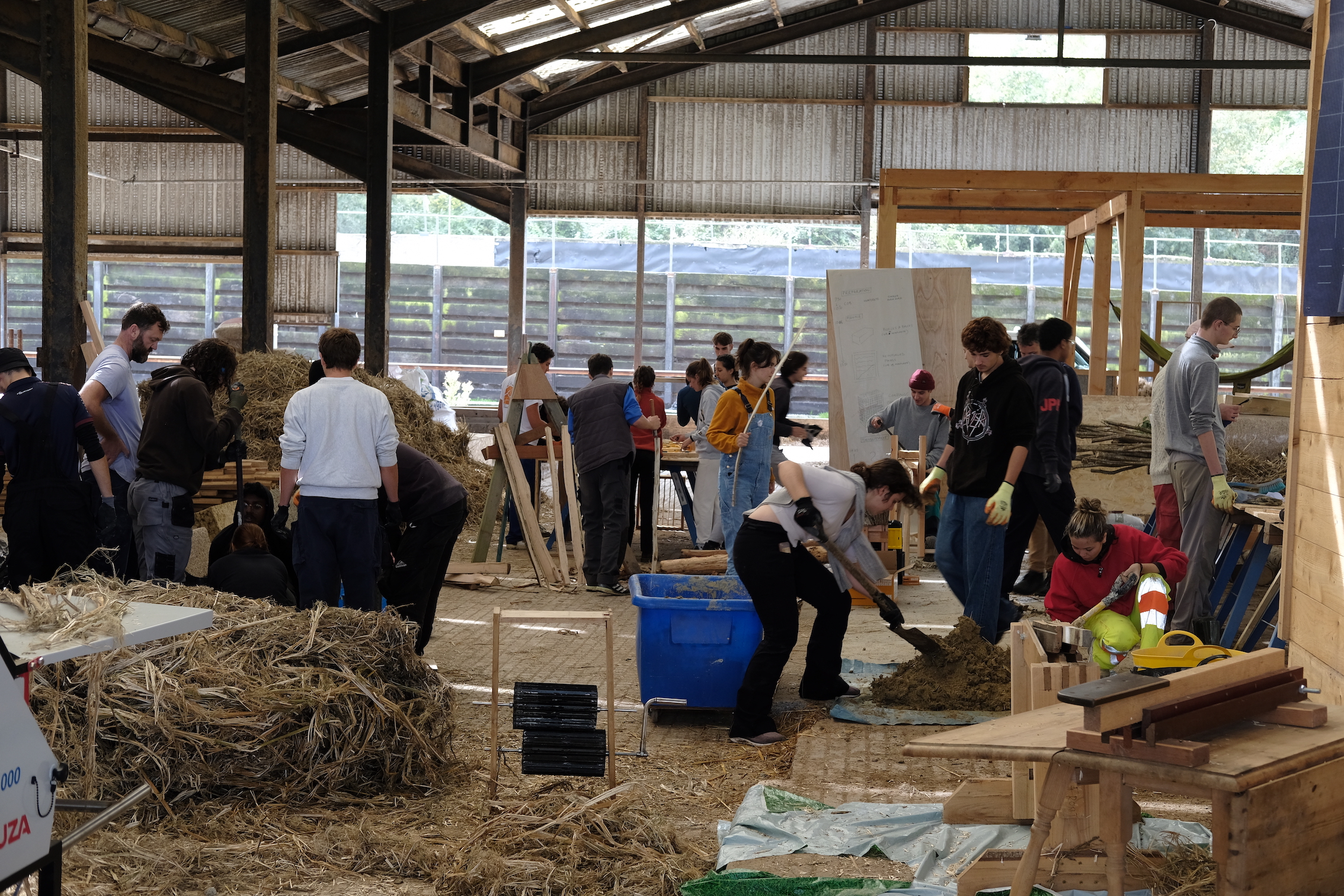
2025 courses at our studio will be:
Winter (Pre-Vernal) – Working with Coppiced Timber – 7th March
Spring (Vernal) – Working with Natural Paints – 25th April
Summer (Aestival) – Working with Waste Excavation Earth – 20th June
Autumn (Serotinal) – Building with Harvest By-Products (plants) – 10th October
The first walking workshop will be in the South Downs in East Sussex, looking at chalk, flint and lime – 9th May
In addition to this program we also run 6 live online workshop events throughout the year, more information can be found at our Substack journal – Grounder

2026 program of workshops and walks will be released soon...
Course No.5
Autumn (Serotinal)
Working with Harvest By-Products (plants)
A hands-on workshop exploring the use of plant fibre for building structure, insulation and finishes. This year we will be focussed on using Wheat straw and Sweetcorn material, both grown at a farm that we are currently working with for a research project funded by: Ecological Citizens
10th October 2025
10am – 4pm
Price = £220 per person
12 participants maximum
Please follow this link to make a booking:
https://www.eventbrite.co.uk/e/building-with-harvest-by-products-plants-tickets-1217978519539?utm-campaign=social&utm-content=attendeeshare&utm-medium=discovery&utm-term=listing&utm-source=cp&aff=ebdsshcopyurl
Vegetarian lunch provided – please contact us if you have any dietry requirements
The nearest train station is Cooksbridge (2 miles), with direct trains to London and Lewes. We can pick-up and drop-off from Cooksbridge at 9.40am and 4.15pm. Please email us if you require this lift: [email protected] There is a limited bus service to the village and some car parking at the farm.
Please bring work clothes and outdoor shoes
This course is open to everyone, including those with no experience of working with these materials.
If you are unable to pay for the course in full, and would like to discuss making 2 stage pre-payments, please email us: [email protected]
Discounts are available for multiple bookings of workshops (does not include the walking workshop):
10% off for second booking
15% off for second and third booking
20% off for second, third and forth booking
Please email us for multiple bookings, rather than using Eventbrite:
[email protected]
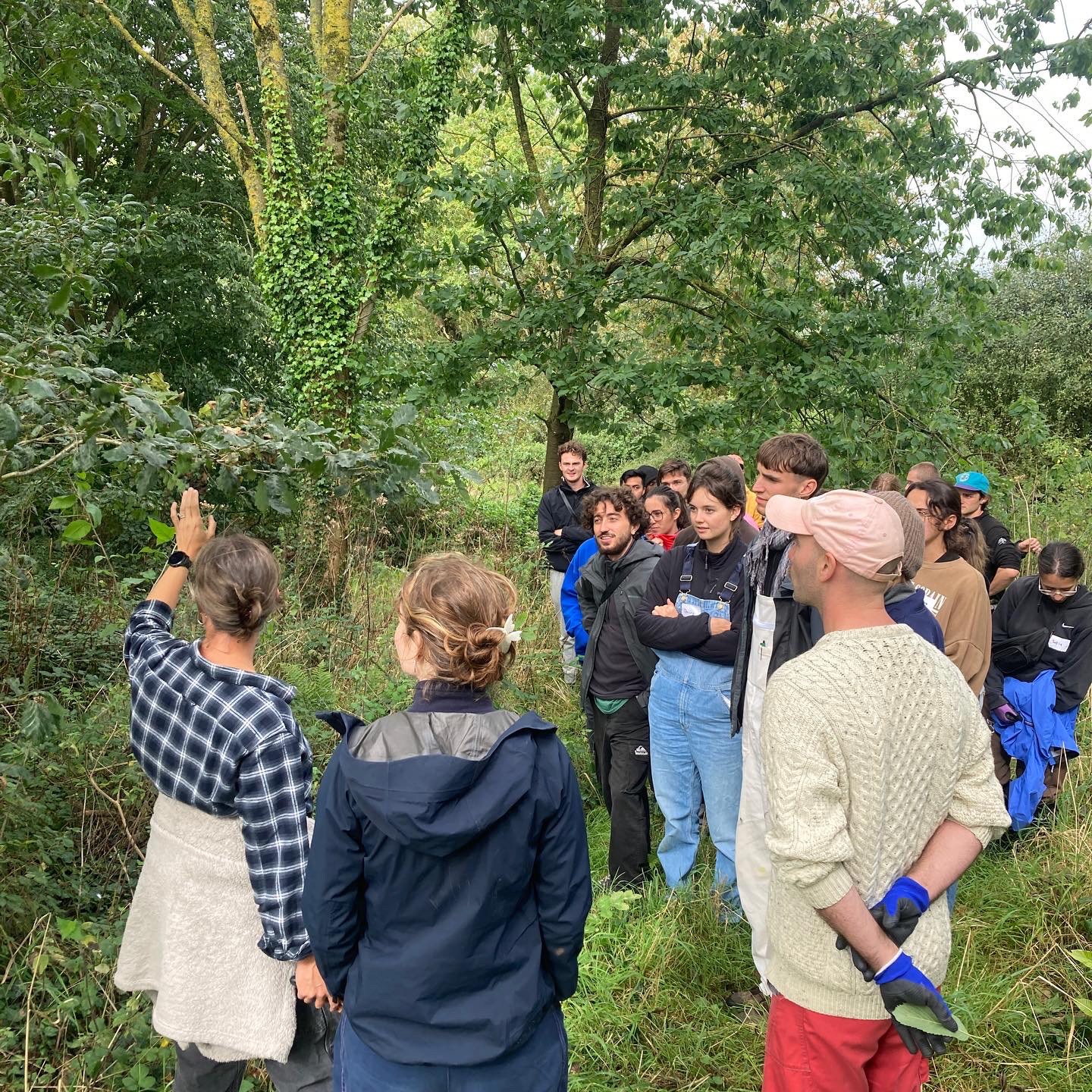
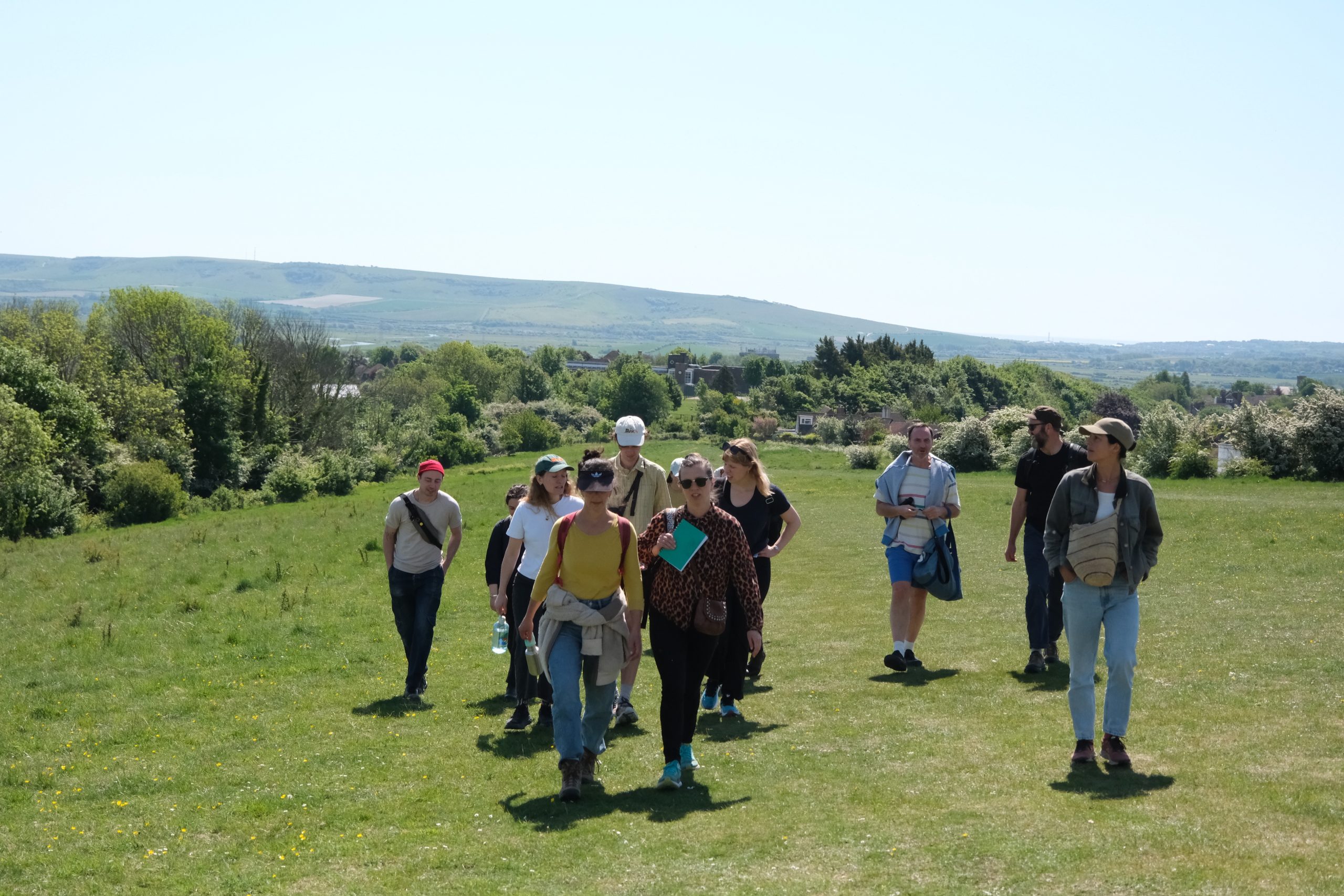
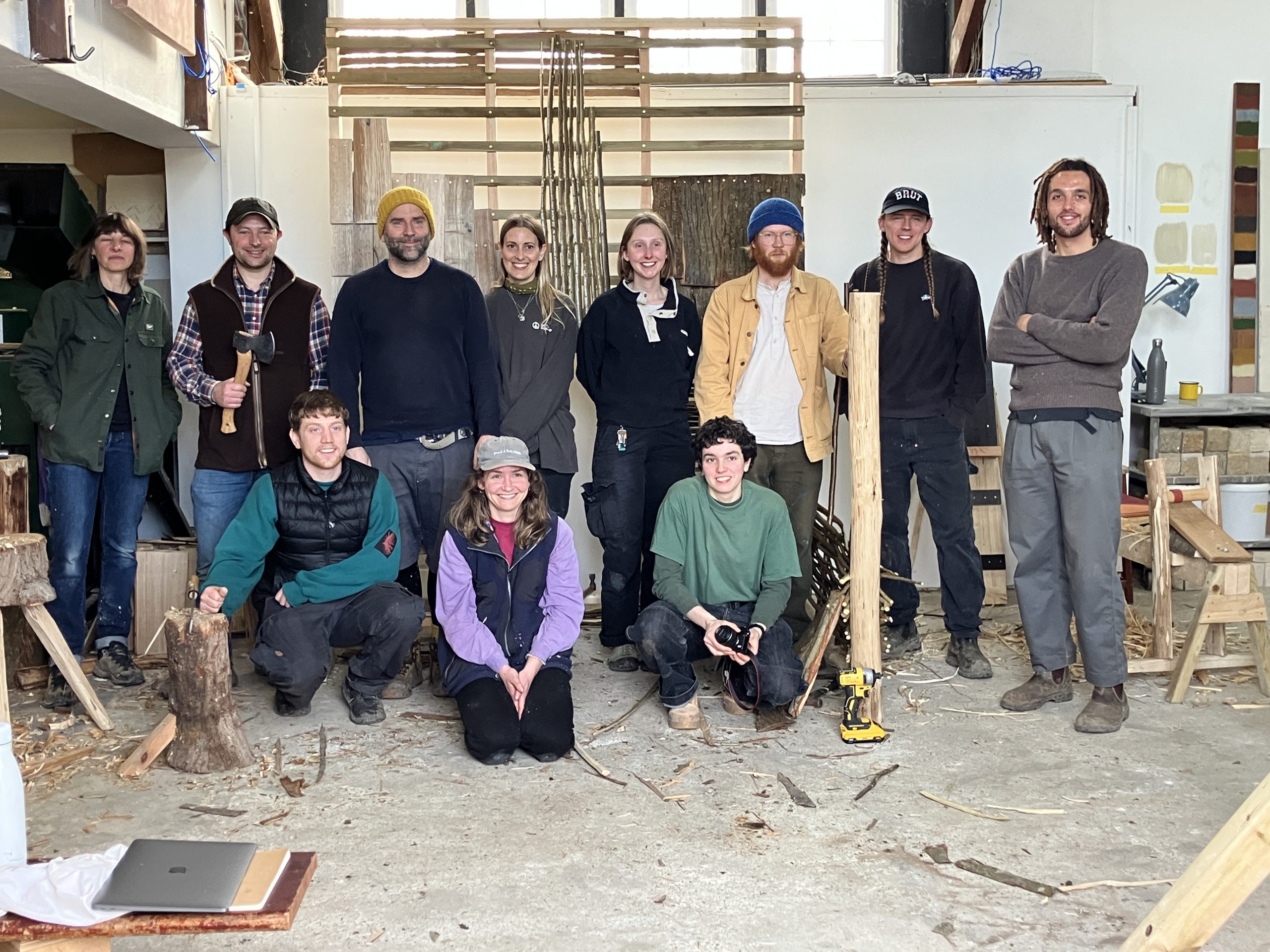
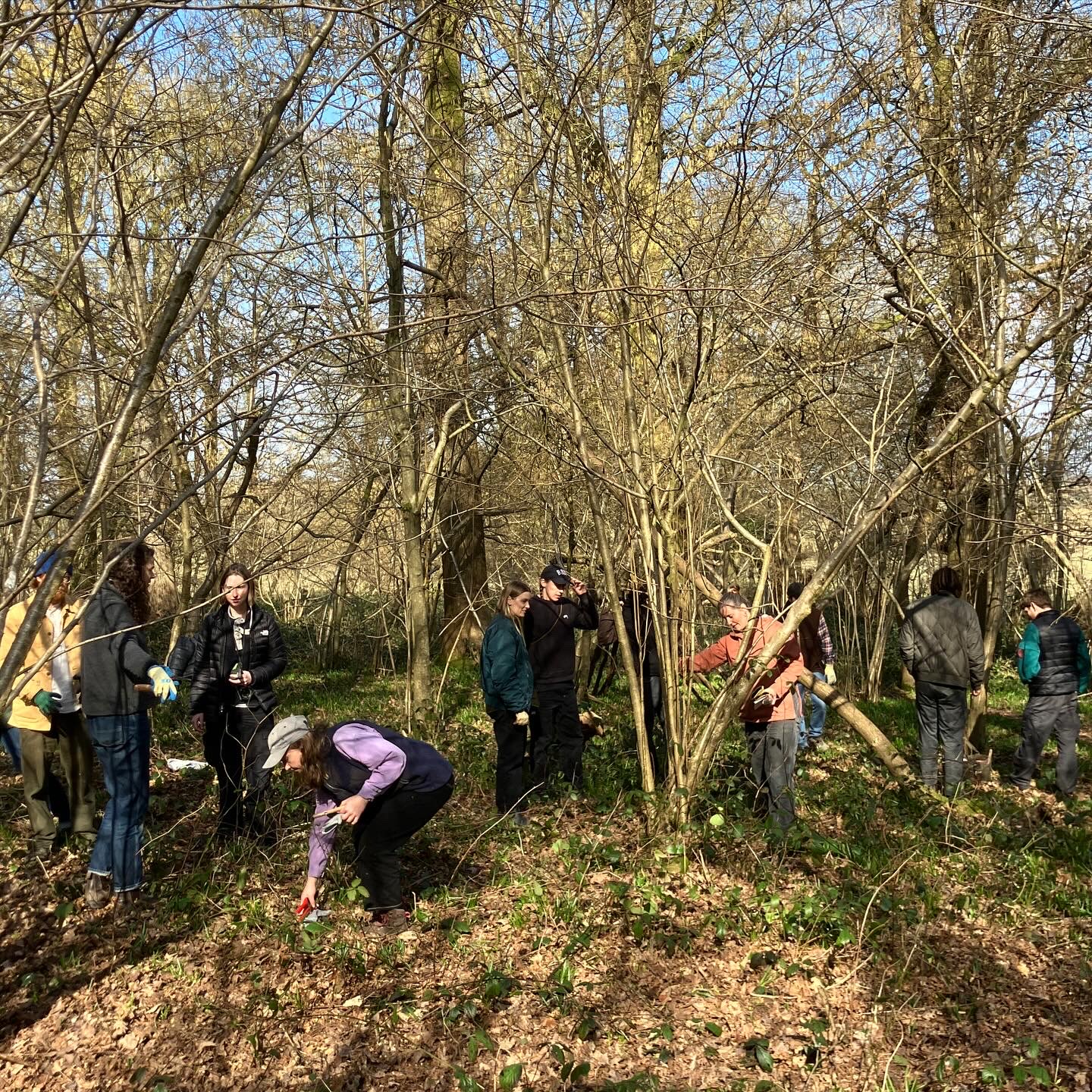
Feedback from workshop attendees:
Thank you SO MUCH for yesterday. It was such a brilliant day. I loved it all – context, people, flowers at lunch, making. I can’t stop looking at my bricks. It was all so well set up and a really perfect pace throughout the day. Everyone on the train was saying how much they learnt. Hope the clear up wasn’t too bad. – Rebecca
Couldn’t have enjoyed it more. Super interesting people, day, location. Sign me up! – Gareth
Dear Ben, Loretta, Matilda,
Thanks so much for curating the chalk walk last Friday. I was inspired by your insights, and the group that assembled around you. Personal highlights included: Seeing (and touching) the evolving flintwork walls as we moved around the town; the tea break at the top of the hill, where we heard different people’s perspectives and ate cementitious snacks; learning from Andy (at Human Nature) about how we might scale these ideas – I’ve been following the Phoenix development for a while, so it was great to hear about their challenges and successes. – VictoriaI really enjoyed it all, particularly learning about the history and application of flint. I found it a good pace and group of people too. – Shirin
It was a really inspiring day full of information, knowledge, experiences and outstanding food to top it off. You all created such a warmth around the day, I’m not someone to usually gets too involved but something about the environment and the way the day was put together made me feel like the options were endless and wanted to get stuck in. It made me question, observe and think far more deeply than expected. It was a joy to spend the day with you. It’s a shame I couldn’t make the coppice workshop and hope you do another on of these next year as I’d love to come. – Ben
Thank you all for putting it on. I had a really fantastic time and it was lovely to meet you. – Charlie
The way the day was structured and paced was exemplary. We learnt so much in a relatively short amount of time with lots of opportunity to move around the studio and try out different methods of making. There was so much raw material and so many tools available, it all felt really generous and enabling. Our group of 12 all got on brilliantly from the outset and by the end of the day were working together on small joint projects with calm and respect. Many people exchanged contact details and were saying they would let each other know about this and that. I can’t not mention the rammed-earth style ginger flapjack for elevenses or the lunch with nasturtium adorned salad – real treat stuff. It is quite a big deal for me to take a ‘day out’ like this at the moment, but I must say this was time truly well spent. I *cannot* stop looking at the bricks I made, and I really hope I get to put some of what I learnt into action soon, either in my front garden or on the allotment. Thank you so much Ben, Loretta and Matilda. What a brilliant team. – Rebecca
